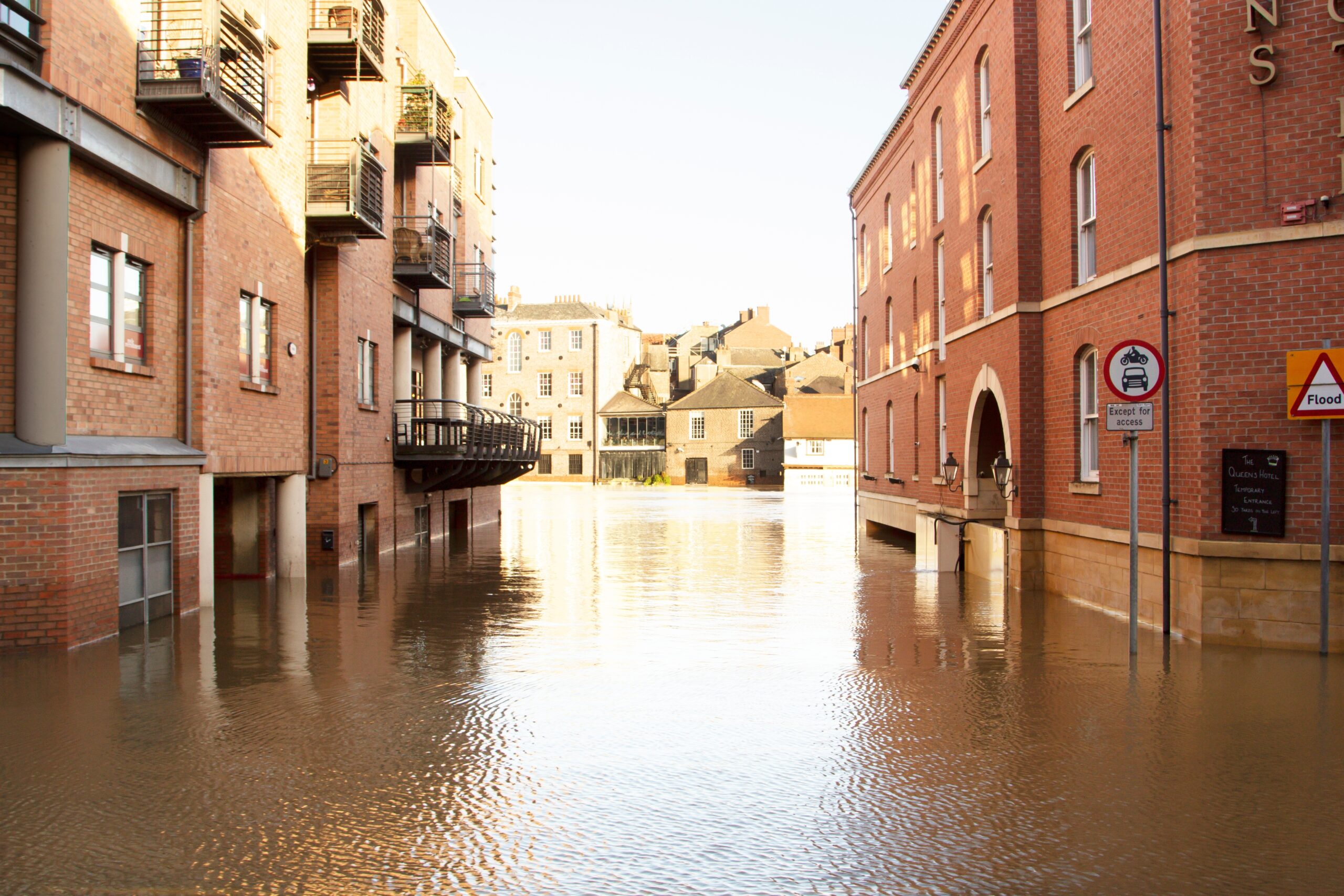Climate change is one of the most pressing threats to health in the U.K. While climate change impacts everyone, marginalized groups and those with pre-existing health conditions are suffering the most, leading to greater health inequalities. This article explains how climate change impacts the health of the most marginalized populations in the U.K. from a human rights perspective.
Climate change and health inequalities in the UK
Climate change causes extreme weather events that impact health. For instance, extreme heat is a serious threat to those with lung and heart diseases. When the U.K. endured record high temperatures of 40°C (104°F) in the summer of 2022, there were approximately 3,000 more deaths in people over 65 in England and Wales.
Extreme heat may also cause overheating of private and public facilities. The Resolution Foundation finds that half of the poorest households in England live in homes that are the most likely to overheat, with social and private renters, as well as households with children, being overrepresented. People experiencing homelessness are particularly exposed, as they may live without shelter or in temporary accommodations that are more prone to overheating.
In addition to extreme heat, climate change is also associated with higher air pollution, which in turn increases deaths and ill-health. In the U.K., concentrations of nitrogen dioxide are higher in cities near major transportation links, where people living in poverty and minority ethnic groups are often overrepresented.
At the same time, people living in the U.K.’s most deprived communities face higher risks of flooding, which is exacerbated by climate change. Families in lower income brackets are also overexposed to the financial consequences of flood events. Both overheating and flooding may damage health facilities when they are needed the most.
While extreme weather events directly place health and lives at risk, climate change also deteriorates health indirectly. For instance, climate change may undermine crops, soil, and water quality as well as biodiversity. This impacts the availability of adequate and nutritious food across the U.K., which is a fundamental determinant of good health.
Similarly, climate change catalyzes infectious diseases outbreak, like tick-borne encephalitis and vibriosis. Emerging research is also finding that environmental disruption may increase the likelihood of pandemics. As the COVID-19 pandemic showed, public health emergencies often disproportionately impact people experiencing poverty.
Beyond physical health, the climate crisis also hinders mental health and emotional wellbeing. In the U.K., research is consistently finding that hot weather increases the risk of suicide and that prolonged droughts impact adolescents’ mental health. Eco-anxiety is also on the rise amongst the youngest.
The right to health
Far from being a matter of charity, addressing the health impacts of climate change is a legal responsibility of the U.K. under international law. In 1976, the U.K. ratified the International Covenant on Economic, Social and Cultural Rights (ICESCR), Article 12 of which enshrines the right to health. The concerning trends outlined above show that climate change jeopardizes two fundamental elements of the right to health: equal access to the underlying determinants of health; and the availability and quality of health care services.
The U.K. is also a party to all other U.N. human rights treaties, which are increasingly interpreted as obliging States to adopt climate mitigation measures. The recognition of the right to a healthy environment, for which the U.K. voted in favor, further strengthened the imperative of climate change mitigation as an obligation under international human rights law. In particular, the 2015 Paris Agreement articulates the goal of keeping global temperatures below 2°C.
At a domestic level, the U.K. is legally required to have reduced its greenhouse gas emissions by 100%, a target referred to as the net zero target, by 2050. This is urgent to mitigate the health impacts of climate change. For instance, without action, annual U.K. heat-related mortality will increase from 2,000 heat-related deaths to more than 7,000 per year in the 2050s.
Unfortunately, the U.K. is lagging behind on these targets. In May 2024, the High Court ruled that the U.K. Government has to redraft its net zero strategy as its existing plan did not provide enough detail on how targets can be met.
For now, the new Labour Government has recommitted to reaching the net zero target. Prime Minister Keir Starmer has also announced, at COP29, a new climate goal to cut emissions by 81% from 1990 levels by 2035. It remains to be seen how these plans will develop in practice.
In addition, the U.K. should implement policies that protect the right to health of those who are most exposed. For instance, climate adapted, zero-carbon homes for all are essential for mitigating the climate emergency and protecting the health of socio-economically disadvantaged groups, which are overexposed to flooding and overheating.
Civil society’s central role
The Global Coalition for the universal recognition of the right to a clean, healthy, and sustainable environment played a vital role in placing people and the planet at the forefront of policymaking. The group’s successful campaign was awarded the U.N. Human Rights Prize in 2023.
This is just one example of how civil society can drive powerful social change and push for progressive legal development. At the European level, a new coalition is now advocating for a Protocol to include the recognition of a human right to a healthy environment in the European Convention on Human Rights (ECHR). As the ECHR still applies to the U.K. via the Human Rights Act (1998), achieving this goal could have important effects in the U.K.
Echoing these efforts, in the U.K., Just Fair, a civil society organisation working to advance everyday rights across the U.K., has recently launched a campaign on the right to health. The campaign pushes for change, so that people can enjoy quality health care, access to adequate living and working conditions, as well as a healthy environment.
